When the phone rang on a recent weekday, 87-year-old Walter Sergeant paused from rearranging his apartment furniture, pushing heavy pieces here and moving other pieces there.
He took the call.
“The furniture isn’t going anywhere,” he said, laughing.
Heart murmurs 411
Don’t let a heart murmur have the last word.
John Heiser, MD, a Spectrum Health Medical Group cardiothoracic surgeon, shares four important things you need to know about heart murmurs—before it’s too late.
1. What is a heart murmur?
It is the sound heard when listening to the heart with a stethoscope. It arises from turbulence of blood flow, which can be caused by disease of various heart valves as well as other abnormalities, such as holes between the heart chambers and even with increased flow through normal structures. For example, a flow murmur can be found in many children with normal heart function.
2. How do I know if I have a heart murmur?
You find out that you have a murmur when a trained medical professional listens to your heart with a stethoscope.
3. What problems can a heart murmur cause?
The heart murmur itself does not cause problems, but is frequently caused by abnormal heart structures. An echocardiogram test is often performed to more fully determine the specific cause of the murmur, though this is frequently suspected by the characteristics of the murmur itself.
4. What can I do about a heart murmur?
Depending on the problem causing the murmur, different approaches are needed. Almost always an echocardiogram is done to help assess the severity of a specific problem. Some problems are able to be followed clinically and others require immediate or urgent intervention.
Heavy activity is nothing new for the Comstock Park, Michigan, resident. He walks a couple miles every day and hits the gym machines for workouts several times a week.
Sergeant, who lost his wife to cancer nine years ago, realizes many his age are navigating through life in walkers or wheelchairs. He feels blessed.
Especially after a recent heart valve procedure improved his stamina.
Diagnosed with a heart murmur almost four decades ago, Sergeant never let the condition slow him down.
“It never bothered me,” he said.
But for the last four or five years, his heart function declined. He tired easily.
“I held off for several years until the procedure for going through the groin was approved by the FDA,” Sergeant said. “I was 86, close to 87. There was no way I wanted to see my chest split open. That’s the other way of doing it.”
On Sept. 5, Spectrum Health Medical Group cardiothoracic surgeons William Merhi, DO, FACC, John Heiser, MD and Stephane Leung, MD, replaced Sergeant’s defective heart valve, which caused the murmur.
Dr. Merhi said Sergeant suffered from a narrowed aortic valve that caused fatigue and shortness of breath.
“Dysfunctional heart valves can cause turbulence to blood flow resulting in abnormal sounds or murmurs,” Dr. Merhi said.
If the valve is severely narrowed and not replaced, patients can experience congestive heart failure, chest pain, passing out and ultimately, death.
“Traditionally, the aortic valve is replaced by placing a patient on a heart/lung machine followed by stopping the heart,” Dr. Merhi said. “The aortic valve is removed and a new valve is sewn in. Trans-catheter aortic valve replacement is a minimally invasive catheter-based approach to replacing a diseased aortic valve.”
The valve is implanted through an artery and implanted while the heart remains beating.
“The recovery is pretty rapid with patients getting up to walk around about six hours after the procedure,” Dr. Merhi said. “Walter did extremely well. At his follow-up visit, he felt great—walking a mile most days of the week without cardiac complaints, a truly life-saving therapy.”
Sergeant feels grateful. And great.
“The whole procedure went like clockwork,” Sergeant said. “I’ve been very fortunate. The Good Lord has blessed me with good health. Everything about my life has been smooth, as phenomenal as you could get.”
Perhaps because Sergeant took such good care of himself.
He jogged for 30-plus years.
“Only the last 10 or so I quit jogging,” he said. “I couldn’t give you a reason why. Not because I was winded or exhausted. It’s tiresome, yes. One of the characteristics of a heart problem is you get winded. I didn’t get winded. I got tired. Running wasn’t something I could keep doing. Walking? Yes. I still walk today.”
He meant that literally. That exact day, after he finished rearranging his furniture, he planned to lace up his shoes and hit his stride outside.
“I’ll walk a mile,” he said. “Do I enjoy it? No. I don’t enjoy exercising. But the company I retired from, one of their fringe benefits was a free membership to Snap Fitness. Do I use it? You’re darn right I do. Three to four times a week. I use it for the exercise machines. They have every darn machine you’d ever want.”
Instead of slowing down with age, Sergeant apparently is getting faster. After his heart procedure, he noticed an increase in his walking speed.
“Last week I walked my old route and I knocked off two minutes compared to prior to the procedure,” he said. “The day after, I knocked off another two minutes. In just shy of a mile, I knocked off four minutes. There’s no pain, no nothing.”
But he doesn’t just exercise his body. Sergeant is drill-like when it comes to exercising his mind.
He is taking six online courses through Hillsdale College. Get a load of this class load: Economics, theology, the Declaration of Independence, Western heritage, investing and statistics.
He especially enjoys learning about Winston Churchill.
“At my age, I know who Winston Churchill is and I know what he meant,” Sergeant said. “That was fascinating.”
His most challenging course?
“Statistics,” he said with a sigh. “I’m just interested in it. I don’t know if I’ll be successful getting through it. Oh, it’s a bugger. There are so many interesting things going on in life with the Internet and everything. That’s what I’m interested in. I’ve got to stay with it. I keep telling my kids, I’ve got to finish these courses online.”
Sergeant likes the freedom of online learning. He can do class work whenever his exercise schedule allows.
“I’ve got to do something, my dear,” Sergeant said. “I’ve got to do something.”
He does a lot of somethings. He was involved in his homeowner’s association and also served on the board of his credit union.
He said he’s tried dating a few times after his wife passed away.
“When you date when you’re 20, that’s one thing,” Sergeant said. “When you’re in your 80s, that is a whole different ballgame. Women are very different. You, as a man, have your set ways of life. It’s a little difficult to cross the boundaries. I’m a trusting guy. If I met you and we dated, you’d see I’m a trusting guy. Most of the women I’ve dated, they’re too suspicious or too much on-guard. I need to enjoy the person.”
Sergeant, whose mom was born and raised in Ireland, said some of his mom’s Irish glibness rubbed off on him.
So did her love of Ireland.
Sergeant has visited his mom’s native country twice.
“When it’s time to eat, I go to a bar and sit down next to a guy or gal from Ireland to find out what Ireland is like,” he said. “I like people. I prefer walking and talking as opposed to picking up the telephone.”
He has a son in Grand Rapids, a daughter in Arizona and a son in California.
“I FaceTime with them,” he said. “You know what FaceTime is? We get four of us on TV all at the same time.”

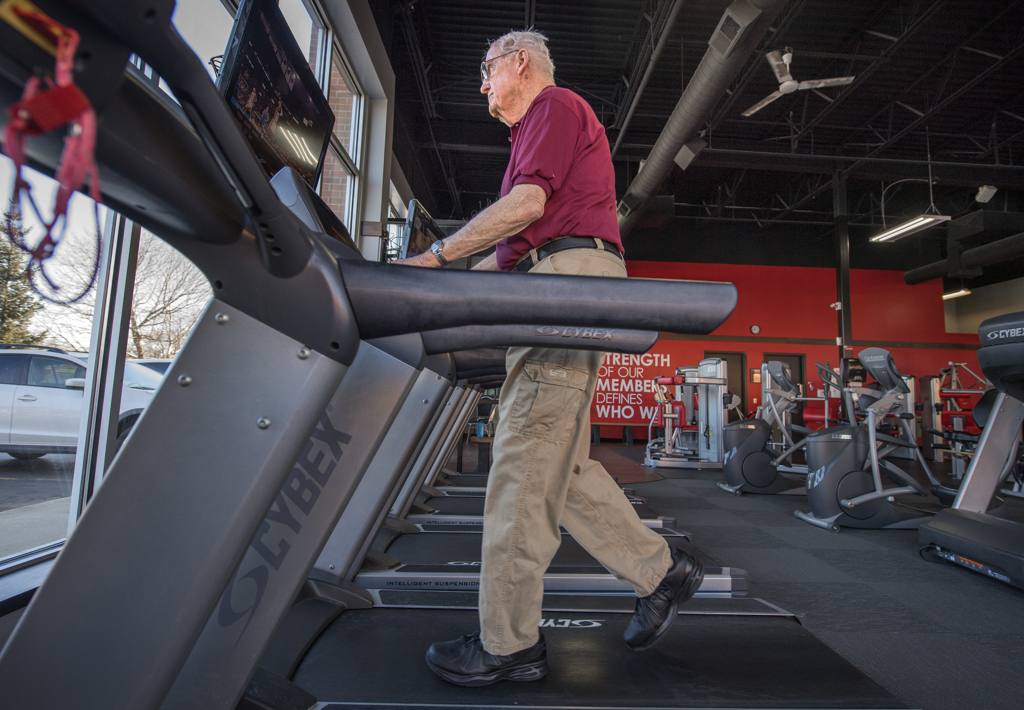
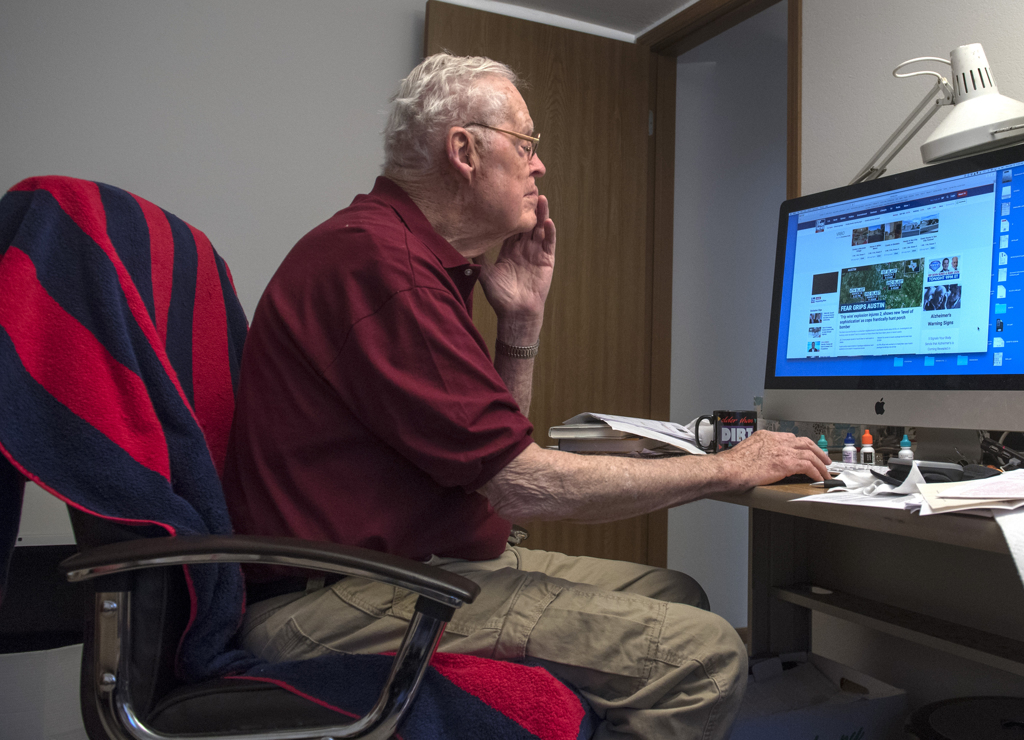

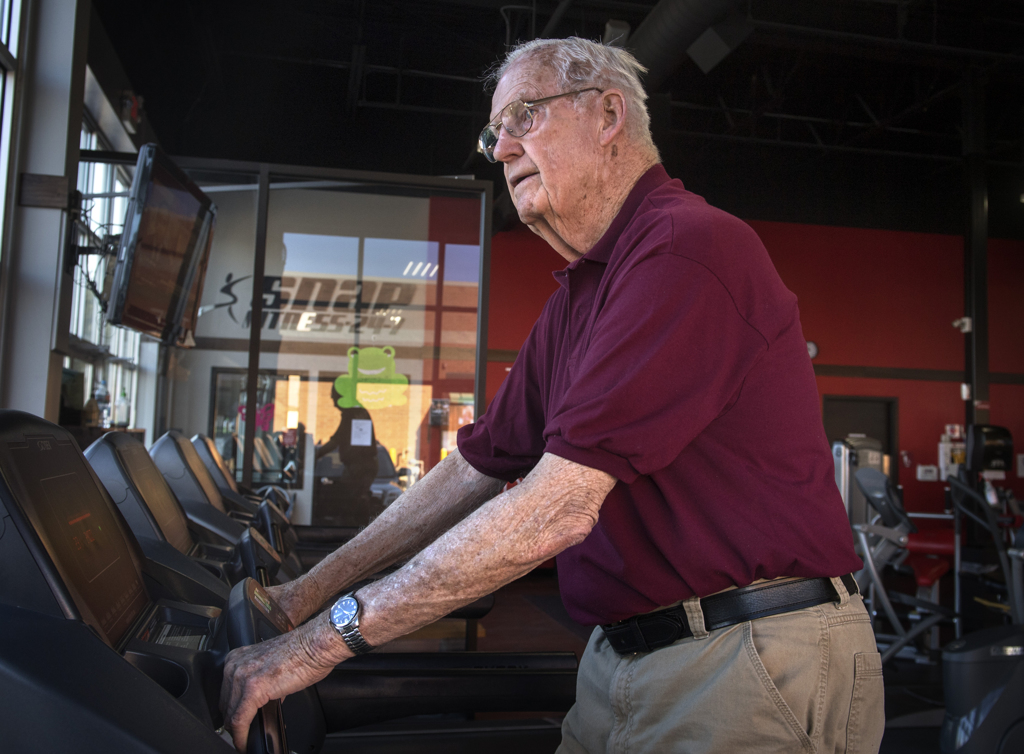
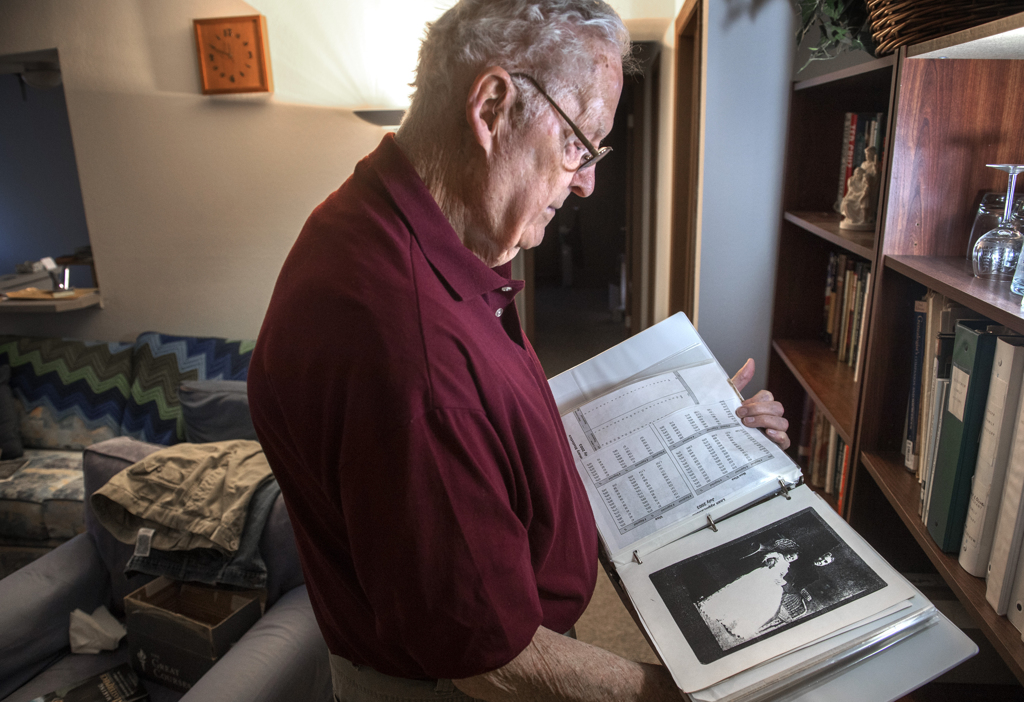







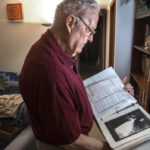


 /a>
/a>
 /a>
/a>
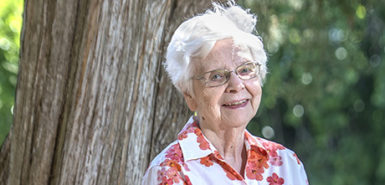 /a>
/a>
He is my uncle. Very proud to be able to say that… I always have and always will try to live life as his example.
Hope I will be walking a mile every day when I am 87.😊
Very cool, Kevin. You’re lucky to have such an awesome uncle. 🙂